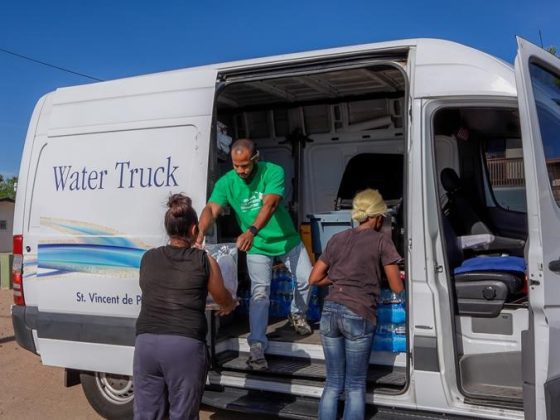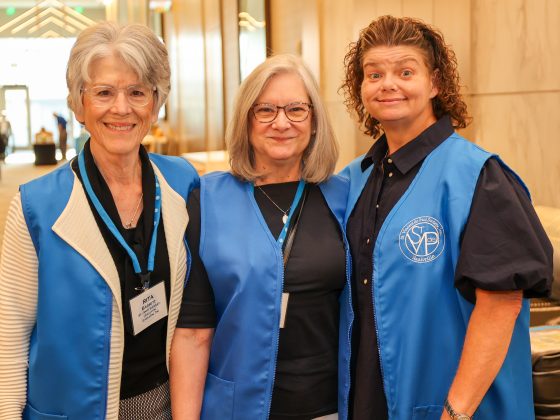Because it is the heart of our vocation, and our primary means of serving the neighbor, Conferences and Councils offer training for the Home Visit. As important as this training is, it really comes down to one thing. As our Rule puts it “visits to the poor are made in a Vincentian spirit.” [Rule, Part III, St. 8]
It is important to note that the statute quoted above doesn’t actually say “Home Visit,” it only says “visits to the poor,.” This is important to keep in mind, because as central and indispensable as the Home Visit remains, there always have been other Vincentian encounters. And just as the Home Visit is the source of all of our other works (systemic change, special works, advocacy, and more) the spirit, and spirituality of the Home Visit must be a part of every Vincentian encounter.
We cannot visit the homeless in a home, yet we bring the same humble, kind, patient deference to the encounter that we would when entering a neighbor’s home. When people visit our food pantries, we are not clerks in a store, but servants of Christ, who is hungry. When shoppers, rich or poor, patronize our Thrift Stores, we offer more than retail “best practices,” we offer our hearts.
While it may be only Active or Associate Members who go on Home Visits, volunteers and staff of the Society also encounter the neighbor in the course of our many works. They often are the only face of the Society some people will ever see. This is why we do not jealously hold onto the word “Vincentian” only for Active Members. All of us who do the work of the Society are serving Christ in serving the neighbor. All of us are Vincentians.
From the earliest days of the Vincentian Family, the priests of the Mission, the Daughters of Charity, and the Confraternities of Charity sought out the poor wherever they were – in hospitals, in the streets, rowing the galleys, or in prisons. To serve them, they enlisted help from others throughout society. Indeed, this was the origin of the Daughters of Charity, formed from poor farm girls who assisted the mostly upper-class Ladies of Charity.
Just as Members bring our Vincentian spirit to every Home Visit, our Vincentian spirit grows as a result of them. The Vincentian spirit animates everything we do, every encounter we have; it is meant to be shared not only with the neighbor, but with each other. Not all volunteers will become Members, not all employees will join Conferences, but then again, not all Members will become Popes or Saints… but John Paul II did.
Our Vincentian Pathway has many starting points, and many routes, but on each of them we will find Vincentian encounters, and all of them lead us to Christ.
Contemplate
Do I welcome volunteers and staff to prayer, reflection, and training with the Members?



